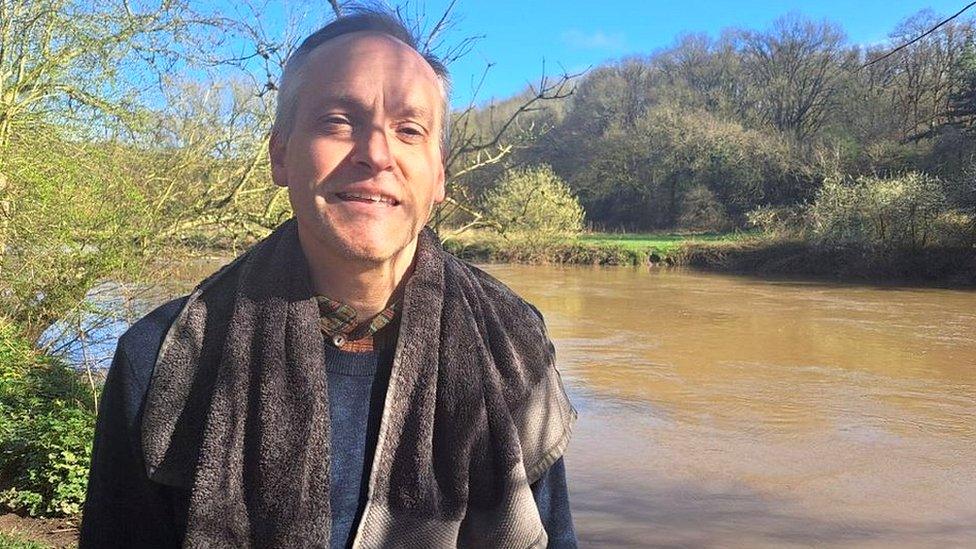'I married the River Avon and it changed my life'
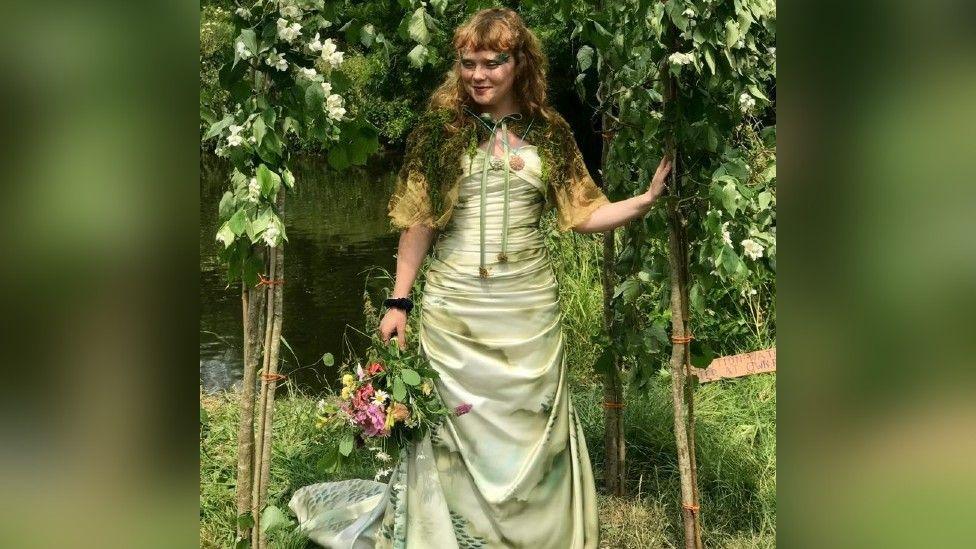
Megan Ruth-Trump said the ceremony was the "least lonely moment of her life"
- Published
A woman who "married" the River Avon said the event had changed her life.
Megan Ruth-Trump and her friends gathered for the ceremony in Bristol in 2023.
Her aim was to raise awareness about untreated sewage being pumped into the waterways, but she said the event had now grown into something "bigger".
"We put together a wedding event that would celebrate love for the river. It would bring people together - it started as a joke but quickly got attention," she said.
In March 2024, figures from Wessex Water showed it was pumping sewage into the river for 8,164 minutes, during storm overflow.
Wessex Water said overflows were "outdated" and it was spending £3m every month to reduce their impact through measures such creating larger storage facilities and increasing capacity to treat waste water before it is released into the environment.
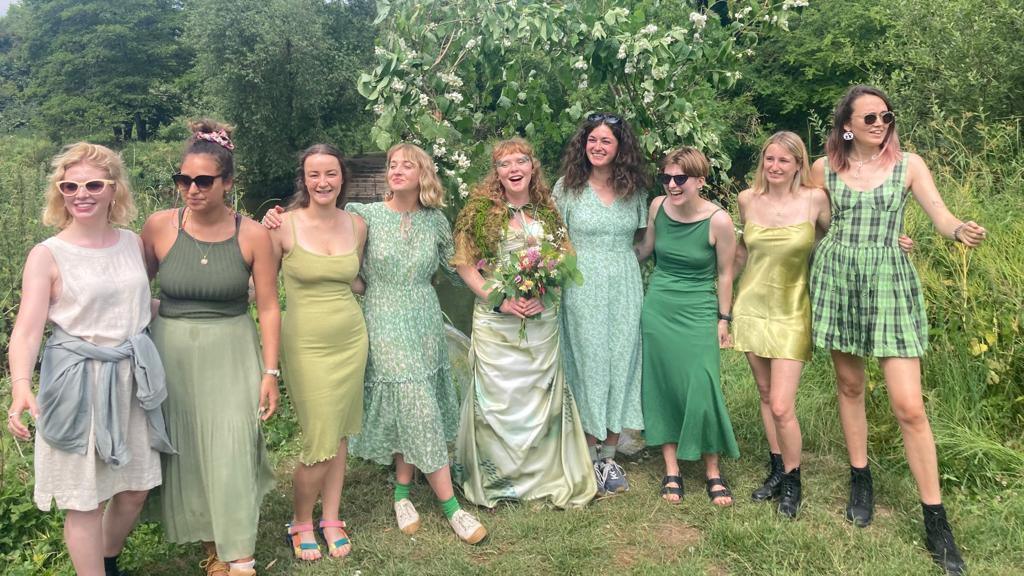
Ms Ruth-Trump said the wedding was "very moving"
'It was very moving'
"It was the least lonely moment of my life," Ms Ruth-Trump said of the wedding.
Wild swimming had always been a big part of her childhood, she said.
During Covid, she discovered places to swim in Bristol - places that "felt wild and clean and free".
Her love for water and activism came together when she got involved in the campaign for clean water in the River Avon, which is organised by Conham Bathing.
Speaking about the wedding, she said: "It felt bigger than the event itself. It felt a bit sacrificial - people's reaction was strong, they thought it was weird and funny and powerful.
"Marriage is a human tradition meaning union, promising care. It was very moving. People were moved to act."
She added that the event "changed her life", saying: "I was brought together with a lot of strong women in film, science, and journalism.
"I was now connected to other river campaigns - all the rivers are connected.
"It's a huge inspiration for my poetry. I'll attempt to be a river bride poet in Bristol."
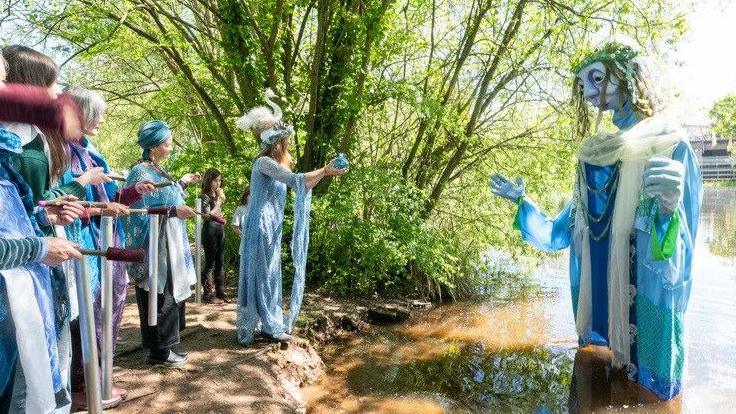
"The puppet can embody the spiritual side of the river"
Activism as a cure
Artist Kim Kaos has also been backing the campaign. He created a puppet representing a river goddess to draw attention to the issue and help people relate to the river as "a being".
Mr Kaos describes himself as an arts activist - he uses his art to "amplify campaigns".
"The river is a big thing for people to conceive - the puppet can embody the spiritual side of the river," he said.
He also got involved with the campaign for his son.
"It's where we live, there's this one blue marble in space that's inhabitable. I do it so my son can live here. The world is magic and incredible," he explained.
"I lived on the bank of the Wye for 20 years. If you see someone you love die, what do you do to take action?
"It's all connected - the rivers flow into each other and into the sea and they hold memories - the water has been dinosaurs, it has been your ancestors - is there any wonder we feel kinship with it?"
He said his mission with his art was to "amplify messages".
"One of the things about being an activist is, you do have to hope. We can feel anger and depression and activism is a great cure for that.
"Activism and caring is really nice and better than sitting in front of the telly feeling desperate," he said.
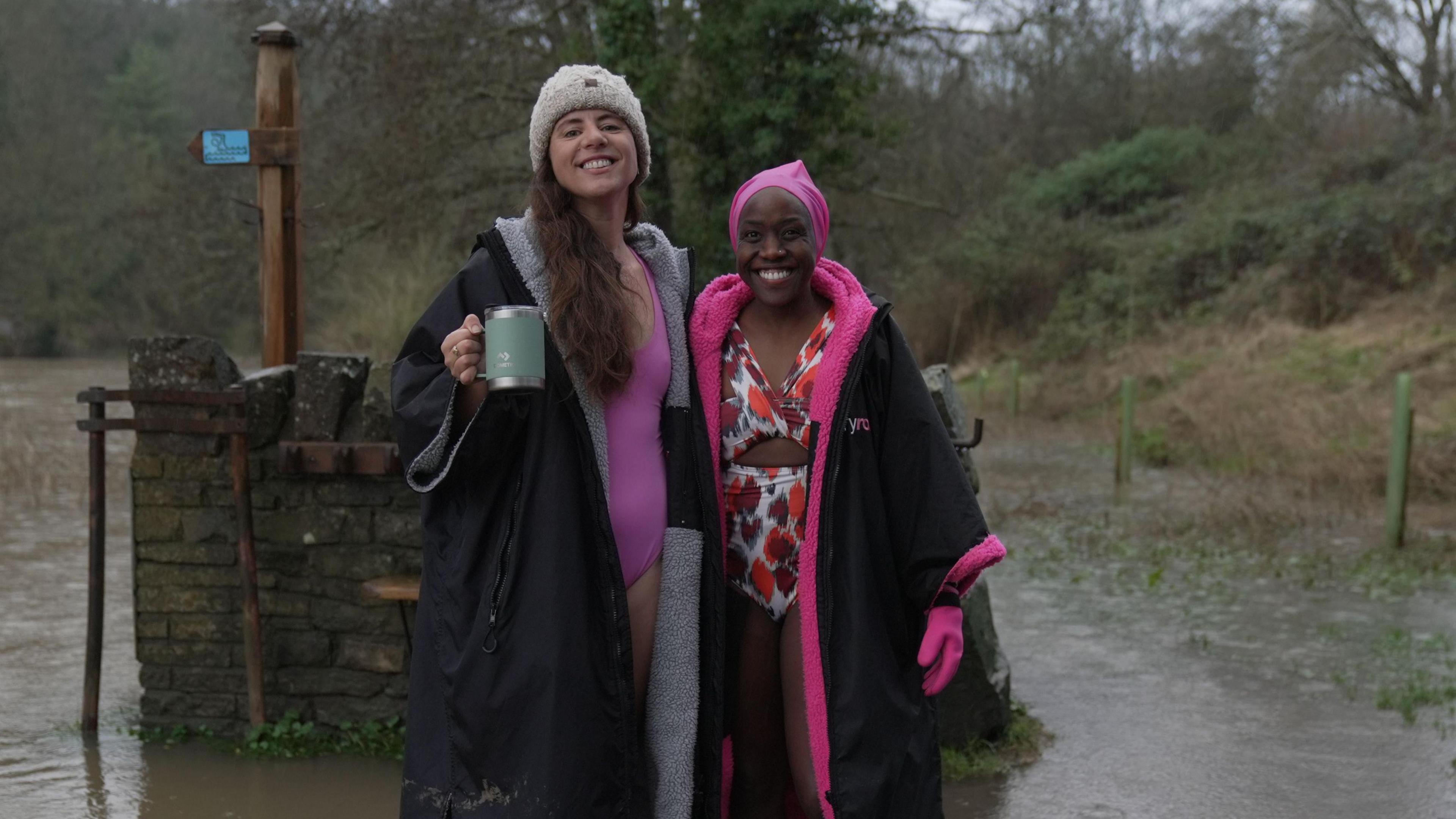
Charlotte Sawyer (left) said she used to go wildswimming regularly
'Weird and creative'
Charlotte Sawyer is a documentary film maker who decided to capture the campaign surrounding the River Avon.
"My house looks onto the water and I would swim there in summer. I had this general understanding not to put your head under, but there was little awareness about how much pollution was in there," she said.
After hearing about Ms Ruth-Trump's river wedding, she decided to go and film it.
"It was a gorgeous ceremony. It was so heartfelt," Ms Sawyer said.
"I get put off swimming in the river these days. I got really badly sick just before one of our screenings, I was so ill. That really put me off for a while.
"I feel really sad when I think about it, it's knowing the joys I'm missing out on, if I can't go."
Ms Sawyer's film Rave on for the Avon will be screened at the Watershed for free on 27 September.
Overflow is 'outdated'
Wessex Water said there would always be bacteria in rivers, coming from wildlife, agricultural run-off and roads as well as regulated storm overflows and treated sewage discharges.
Specifically on the Bristol Avon, Environment Agency data indicates overflows contribute to just 3% of the reasons the catchment does not achieve good ecological status – well below urban run-off (31%) and agriculture (25%).
A Wessex Water spokesperson said: “We understand and support the desire to make more use of rivers for recreation, including swimming, so we’ve been working with the council and the Conham Bathing group to increase awareness of water quality.
“Lowland rivers will always have bacteria in them, while the safety of wild swimming at specific locations is for councils and others to determine. But we want to help people make an informed choice.”
Get in touch
Tell us which stories we should cover in Bristol
Follow BBC Bristol on Facebook, external, X, external and Instagram, external. Send your story ideas to us on email or via WhatsApp on 0800 313 4630.
- Published21 June 2024

- Published23 March 2024
